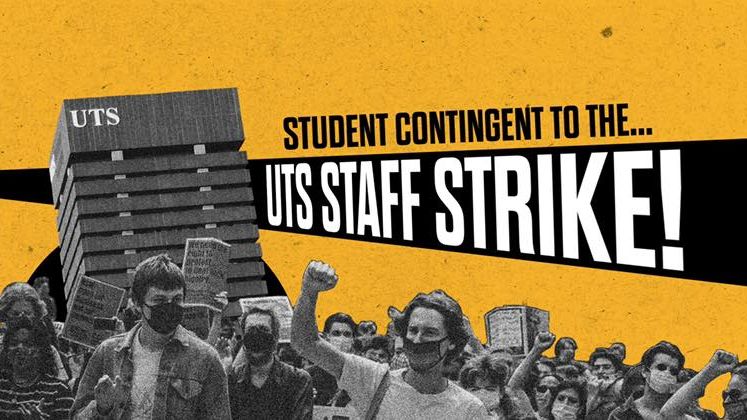The strike, which will occur between 9am and 11am, takes place amid ongoing enterprise bargaining between UTS management and the National Tertiary Education Union (NTEU).
Staff demands
Throughout the bargaining period, the NTEU have been demanding greater job security, a commitment to Aboriginal and Torres Strait Islander employment targets, more supportive staff working conditions, and 30 days of gender affirmation leave from management.
UTS management are yet to meet these demands to the satisfaction of the NTEU.
While some of the NTEU’s pushes are multi-faceted, UTS Branch Director Dr Sarah Attfield claims that the proposed road to improvement is undoubtedly feasible.
"We want to see some commitment to reducing the casualisation of professional and academic staff around the university,” she says. “The University of Western Sydney recently signed off on a deal that will create jobs for currently casually-employed academics, so we’re hoping for something along those lines.”
In addition to de-casualisation, the NTEU’s pursuit of job security involves a pay-rise in accordance with the rising cost-of-living, restrictions on the use of fixed-term contracts, and a change in definition of the term ‘redundancy’ for staff.
“Redundancy should mean that the work is no longer required. At the moment, the university’s definition of redundancy is that the position is no longer required,” Attfield says. “If someone is made redundant then somebody else has to pick up their workload.”
Another key feature of negotiations is the creation of an Aboriginal and Torres Strait Islander employment target in the new enterprise agreement.
Currently, UTS leadership work in accordance with the Wingira Indigenous Employment Strategy 2019-2023, which encourages employers to achieve a 3% Indigenous employment rate across the university.
However, management are yet to formalise this in an enterprise agreement, meaning there are no mechanisms for enforcing the employment target. According to the NTEU, they have refused to commit to doing so during bargaining.
Management’s response
UTS management have expressed disappointment at the occurrence of the strike but maintain that they will continue to bargain in good faith towards a new enterprise agreement.
Speaking to Vertigo, a UTS spokesperson testified to the productivity of negotiations so far.
“[We] believe that significant progress has been made to date,” they said. “Including on clauses dealing with the management of change, Indigenous employment provisions, and gender affirmation leave.”
The NTEU, however, believe that while progress has definitely been made, discussions were being hindered by various “sticking points.”
“There has been some progress around Aboriginal and Torres Strait Islander employment in terms of conditions, but not the employment target,” says Attfield.
“For gender affirmation leave, the university is offering 20 days while we’re asking for 30. We don’t think that’s a problem – we think it’s a small amount to ask for that will be incredibly meaningful for anyone who needs to take it."
The role of students
For UTS Student’s Association (UTSSA) General Secretary Sabrine Yassine, the expectations of students in relation to the upcoming industrial action are clear.
“Don’t go to class,” she says.
Over the past week, the UTSSA and NTEU have combined forces in urging students to demonstrate support for their tutors and lecturers this Wednesday. Students who are unable to rally outside UTS Tower alongside staff during the strike are being encouraged to stay home, sleep in, and spread awareness among their colleagues.
Aside from attending the protest in solidarity, UTSSA President Anna Thieben claims that students can continue to support their tutors by changing their attitudes and leading the conversation around staff working conditions.
“Generally, there’s a rhetoric of ‘my lecturer doesn’t do this,’ or ‘my tutor gives me crap feedback.’ I think that rhetoric needs to change,” she says.
“Students have to be conscious of the fact that there is a reason behind all of that. It’s because these people aren’t being paid overtime, or they aren’t getting paid accordingly.”
The UTSSA are currently organising a student contingent to the staff strike via FaceBook.


 -
-